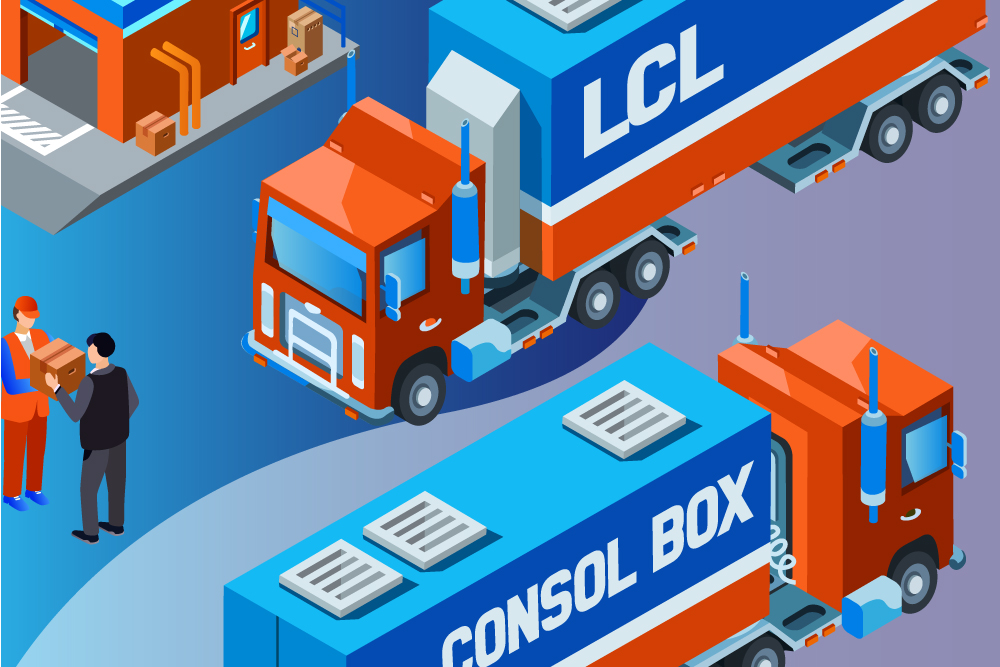Less than Container Load Container (LCL)
A Less than Container Load (LCL) shipment is when a consignment of goods is shipped via sea freight and loaded into a shared container with other consignments. It is also known as Groupage or Consolidation. Less than Container Load reduces your warehousing costs. You don’t have to pay for the entire shipping container. You’re not obliged to fill the whole space as you can share the container with other consignees. LCL shipping is a good option until such time you have the means to accommodate an FCL shipment.
There are real advantages to shipping LCL. For example, if you are a small-sized company that’s keeping a close watch on the inventory shipping volumes, LCL makes sense if you want to avoid keeping large amounts of inventory on hand. Instead of committing to large deliveries, which can carry the risk of tying up much needed cash flow, LCL shipments can provide a steady flow of inventory in smaller quantities.
If you do business on a consignment basis, it may not be practical to book a full container. The LCL could be the best option to explore. It’s an excellent alternative when it comes to testing out a new supplier. The small deliverable of a new product is ideal if you wish to verify first the quality, capability, and reliability of a new partnership.
Consol Box
Consol Box is a cargo shipping method that is almost the same as the Less than Container Load (LCL) shipment. But when does a container classify as a Consol box? You can call a container a consol box when the consolidator does the consolidation. Consolidator is a firm which groups together orders from different companies into one shipment.
In this case, the consolidators issue their House of Bills Lading to the shippers and secure a Master of Bill of Lading from the shipping line for the container that is booked with the line as the FCL. This will show them as a shipper on the lines bill of lading. Depending on the contract with their customers, the House Bill Lading may be termed as CFS/CFS or Door to Door. The consolidators’ obligations and delivery terms will depend on such stipulated terms mentioned on the bill of lading. The consolidator charges the freight charges for these to the shippers, which should be commensurate with the amount of cargo they have received from the shipper.
For example, various shippers deliver LCL cargoes going to various destinations to the packing warehouse nominated by the consolidator, and then the port of load is, let’s say, Durban. The consolidator usually has a few consolidation or deconsolidation points around the world. This includes Dubai for all Middle Eastern countries, Singapore for all Far East/South East Asian countries, New York for the Americas, and Hamburg for Europe.
The consolidator will consolidate the cargo based on its final destination and arrange the packing accordingly. For example, the Far East, South East Asian, Australasian ports like Keelung, Penang Sydney, Adelaide, Honiara may be booked via Singapore, which could be the consolidator’s hub port for these areas.
Conclusion
Beforehand, we knew that Less than Container Load shipment and Consol Box has some similarities – they both consolidate freights from multiple consignees into a single container and transport or ship them as a whole. But, as we differentiate these two methods, we find out that in some aspect they also differ from each other. Difference between the two is identified when transporting. If the shipping line does the transport in their own warehouse, then that container is called as an LCL container. But, if the consolidator does the transport, then that container is called as Consol Box.


